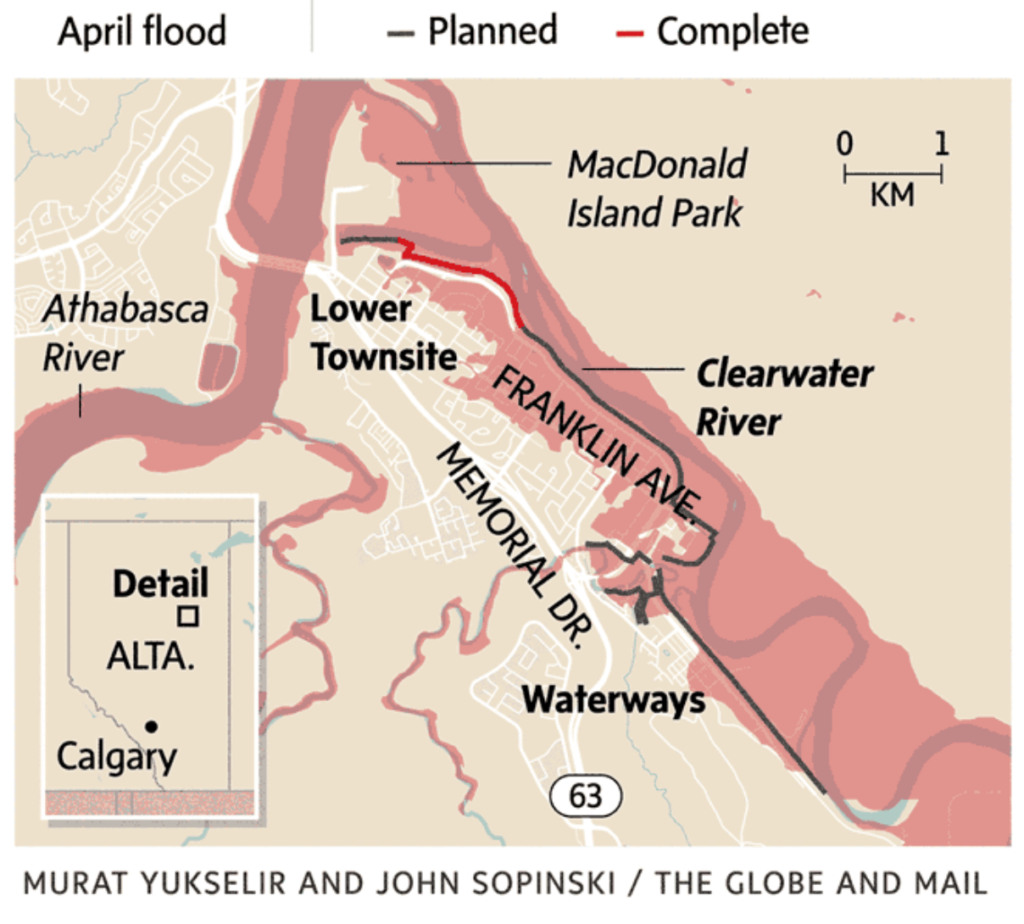Fort McMurray recently experienced the worst flooding it has seen in decades – a 1-in-100-year disaster caused when ice jammed the Athabasca and Clearwater rivers.
After floods in 1997 and 2013, the Regional Municipality of Wood Buffalo (RMWB) approved millions of dollars for flood mitigation in its 2014 budget.

However, a series of decisions, delays and unfortunate events over the past decade meant that the full flood mitigation system was not in place to save Fort McMurray this year, despite initial plans to have the project finished by 2017.
“The municipality has spent over $150 million on flood mitigation, representing about half the cost of the work. [But] without complete berm protection around the downtown area, the water found its way into areas across the lower townsite.”
Matthew Hough, RMWB deputy chief administrative officer
Although the majority of the mitigation work will be completed in 2021, it’s already too late.
Don’t let this happen to Calgary
Fort McMurray’s experience serves an important reminder of why we cannot afford any delays to critical flood mitigation projects, both on the Elbow and the Bow rivers.
The completion of large-scale infrastructure projects is challenging in the best of times, even more so today given new legislation.
Maintaining the political will for these multi-year projects can be difficult, as it is unlikely a single elected official will see the completion of the project during their term.
While there is clear motivation from the current provincial government to see the Springbank-Off Stream Reservoir (SR1) over the finish line, the project has already experienced its share of delays, as is clearly outlined in Martin Ignasiuk’s June 2019 report); we can’t afford any more delays.
Among the reasons that delayed Fort McMurray’s flood mitigation were a project redesign, declining oil prices, project deferrals due to reduced capital budgets, and the 2016 wildfires.
Fort McMurray’s flood defenses were just one year shy of completion.
We’ve now seen the true difference a year can make.
When SR1 was first selected the initial projection for when it would be operational was 2018. With no further delays, SR1 will be operational in time for flood season 2024.
While we’ll be lucky to get SR1 6 years delayed from those initial projections, upstream mitigation on the Bow River is still at least 10 years away – 17 years after the Southern Alberta Floods.
For an update on the status of key flood mitigation projects to protect Calgary, read our latest post.
Related media coverage:
- CBC News – Fort McMurray spending millions on berms, but flood-weary residents want out
- Globe and Mail – Why Fort McMurray’s flood defences weren’t ready when the town needed them most
Regards,
Your CRCAG Board

